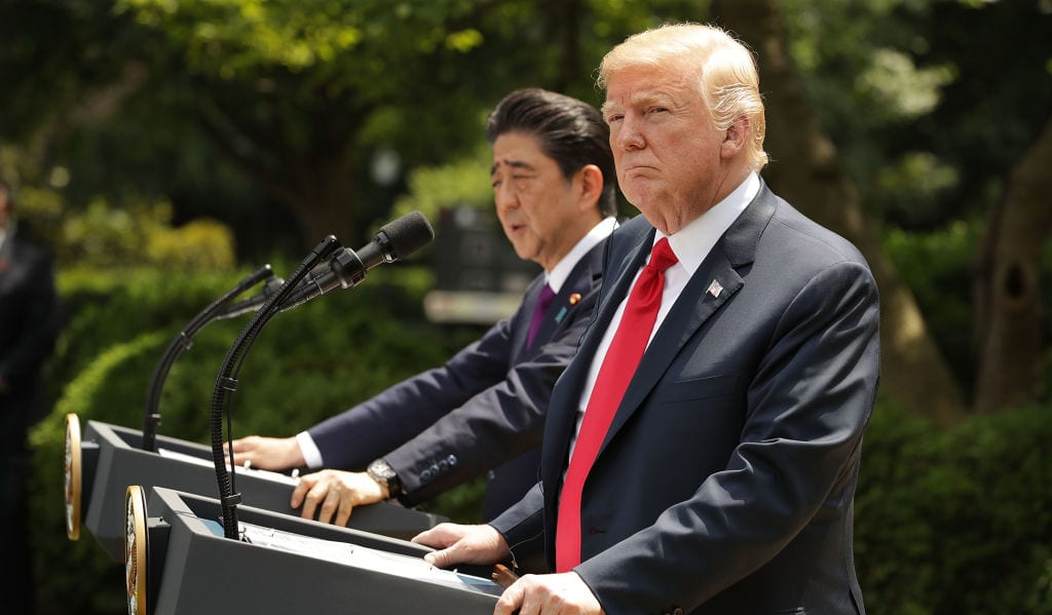Of all the bogus lines of attack used by the left against Trump, employing professionals in the mental health field as political allies may be the most obnoxious.
Of course, many psychologists, psychiatrists, and therapists are willing accomplices in assaulting the mental health of those for and against the president. But intimating that someone is crazy for supporting Trump or, in this case, is driven crazy by the president, should be out of bounds.
It used to be. The American Psychiatric Association actually adopted a rule after mental health professionals attacked 1964 GOP presidential candidate Barry Goldwater as mentally imbalanced and thus, unfit to serve as president. But lately, many mental health professionals have called the “Goldwater Rule” into question, saying that Trump is so toxic he deserves to be smeared.
So it’s not surprising that the Canadian Broadcasting Corporation would run an article that blames Trump for a brand new mental health issue — “Trump Anxiety Disorder.” The piece is classic hit-and-run journalism made even more nauseating by using anti-Trump professionals to help them do their dirty work.
Therapists in the U.S. say they have seen a rise in politically-related anxiety under the Trump presidency.
Though a condition has not been officially named, therapists and patients have referred to it as “Trump Anxiety Disorder,” according to a report from Canada’s CBC News.
Elisabeth LaMotte, the founder of the D.C. Counseling and Psychotherapy Center in Washington, D.C., told CBC that there is a “collective anxiety” among her patients related to President Trump’s rhetoric and policies.
“There is a fear of the world ending,” she said. “It’s very disorienting and constantly unsettling.”
I’m sure it is. But is the disorientation the result of Trump policies or media reporting of those policies? If the media reports are hysterical, won’t some consumers become hysterical reading them?
LaMotte told CBC that the “condition” is also common among Trump supporters, who often say they feel “isolated” by friends and family for aligning with the president or pulled into angry conversations.
Steve Stosny, another D.C. therapist, told CBC that he worked with a Trump administration official whose liberal-leaning wife and daughter were “starting to hate him.” The couple eventually decided to divorce, even though the husband left his post.
“The wife couldn’t take it anymore,” Stosny said. “It’s tough when one spouse is at war with the children.”
So that’s two therapists reporting on “Trump Anxiety Disorder.” Does this make the condition really that widespread?
Multiple therapists told CBC that they observed symptoms, including lack of sleep, excessive use of social media, feelings of losing control and helplessness, in their patients that they attributed to Trump-related anxiety.
OK, now we’re up to “multiple” therapists reporting on the condition. But note the “symptoms” they’re observing: How many other “conditions” involve” lack of sleep, excessive use of social media, feelings of losing control, and helplessness”? Why ascribe these symptoms to anything relating to the president?
When in doubt, appeal to authority:
The American Psychological Association (APA) found in a recent online survey that stress levels following the election are the highest they’ve been in a decade. And the majority of respondents reported stress over the 2016 election and the future of the nation as factors.
Not to point out the obvious, but I seem to recall two candidates running for president. Couldn’t some of that stress in voters be related to fear of a Hillary Clinton presidency?
I think the CBC went out and found a small number of anti-Trump therapists and turned their bias into a full-blown mental health disorder. This isn’t just dishonest journalism. It’s a betrayal of the mental health profession and a perfect example not of “Trump anxiety disorder,” but of “Trump Derangement Syndrome.”










Join the conversation as a VIP Member